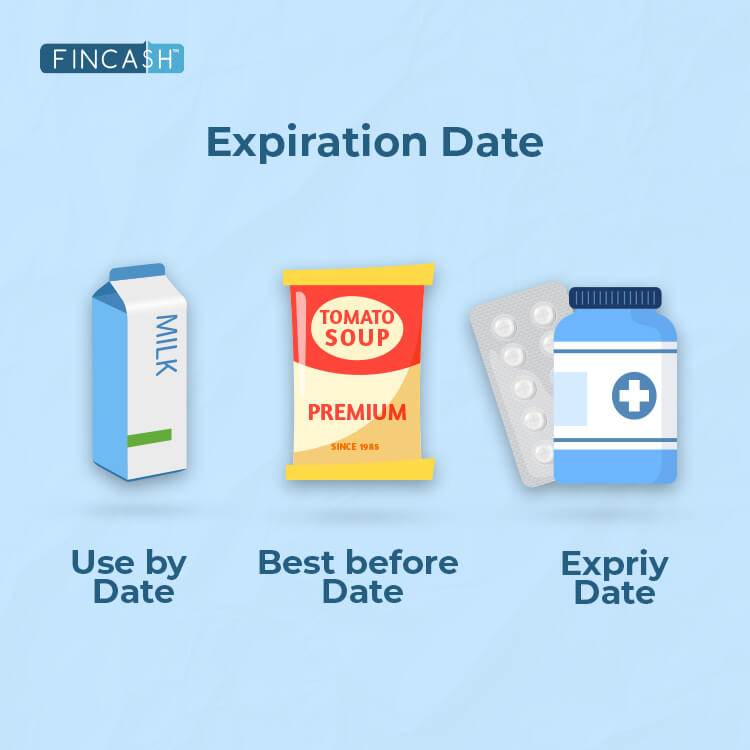
Table of Contents
Defining Expiration Dates
In the web of grocery store aisles and kitchen cupboards, when you try to look for expiration date meaning, you find out that it is a silent guardian of our food's freshness and safety. Understanding these dates is vital for consumers to make informed choices and minimise the risk of consuming expired products.

This article aims to untie the mystery behind expiration dates, providing insights into their significance, variations, and how they impact our daily lives.
The Significance of Expiration Dates
Expiration dates, often labelled as "Use By," "Best Before," or "Expiry Date," serve as a guide to the freshness and safety of consumable products. These dates are not random; they are determined by manufacturers based on rigorous testing to ensure optimal quality and safety up to a specified point.
Use By Date: The "Use By" date indicates the date until the product is anticipated to be at its best quality regarding taste, texture, and nutritional value. Consuming the product after this date might not pose an immediate health risk, but the quality could be compromised.
Best Before Date: "Best Before" dates are similar to "use by" but signify the period during which the product is expected to be in its prime condition. Beyond this date, the quality might decline, but the product is still considered safe to consume.
Expiry Date: The "Expiry Date" is a more critical deadline. Products past their expiry date may pose health risks and are generally not recommended for consumption.
Talk to our investment specialist
Variations in Expiration Dates
In India, the diversity of culinary practices and the array of food products available contribute to a varied landscape of expiration dates. Understanding these variations is crucial for making informed choices:
Packaged Foods: For packaged foods in India, expiration dates are often labelled as "Best Before." This applies to various products, including cereals, snacks, and canned goods. It signifies the period of optimal quality.
Dairy Products: Dairy products like milk usually bear a "Use By" date. It is vital to adhere to this date for freshness and to prevent bacterial contamination.
Fresh Produce: Fruits and vegetables, often sold without explicit expiration dates, follow a more visual inspection approach. Signs of discolouration or an off smell indicate the freshness of these items.
Medicines: Over-the-counter and prescription medicines carry expiration dates to ensure their efficacy. Consuming medications beyond their expiration dates may lead to reduced effectiveness.
Factors Influencing Quality Date Determination by Food Manufacturers
When establishing the optimal quality date for a product, producers and retailers consider variables such as the duration and storage temperature during transit and sales. Additionally, specific attributes of the food item and the type of packaging employed contribute to assessing how long the product will maintain its peak quality.
Impact of Expiration Date on Daily Life
Understanding expiration dates significantly impacts the daily lives of consumers:
Food Safety: Adhering to expiration dates is paramount for ensuring food safety. In a country where diverse culinary practices are a way of life, avoiding the consumption of expired products is a vital aspect of maintaining health and well-being.
Minimising Food Waste: Recognising the shades of expiration dates aids in minimising food waste. It encourages consumers to plan their purchases, consume products before expiration, and adopt sustainable practices in the kitchen.
Health and Hygiene: Beyond taste and freshness, adhering to expiration dates is a matter of health and hygiene. Consuming expired products, especially in a country with many street food options, can lead to foodborne illnesses.
Argument Surrounding Food Expiration Dates
The introduction of expiration date labels on food traces back to the 1970s, a response to consumer advocates expressing concerns about the uncertainty regarding the safety and edibility of packaged foods upon purchase. In contemporary discussions, criticism has surfaced, alleging intentional inaccuracies in date stamps, potentially influencing consumers to discard and repurchase products that remain perfectly edible. Given the varying state regulations, food producers have embraced a consistent practice of labelling their products, irrespective of the destination. Consequently, the clarity of expiration dates on food items becomes a matter of vagueness. In contrast, expiration dates on medicines adhere to a more straightforward standard.
Conclusion
Expiration dates shape our consumption habits in bustling markets and kitchens. They are not merely numbers stamped on packages but valuable guides that ensure the products' freshness, quality, and safety. As consumers, embracing a proactive approach to understanding and respecting expiration dates empowers us to make choices that resonate with health, sustainability, and a commitment to minimising food waste in our daily lives.
All efforts have been made to ensure the information provided here is accurate. However, no guarantees are made regarding correctness of data. Please verify with scheme information document before making any investment.












